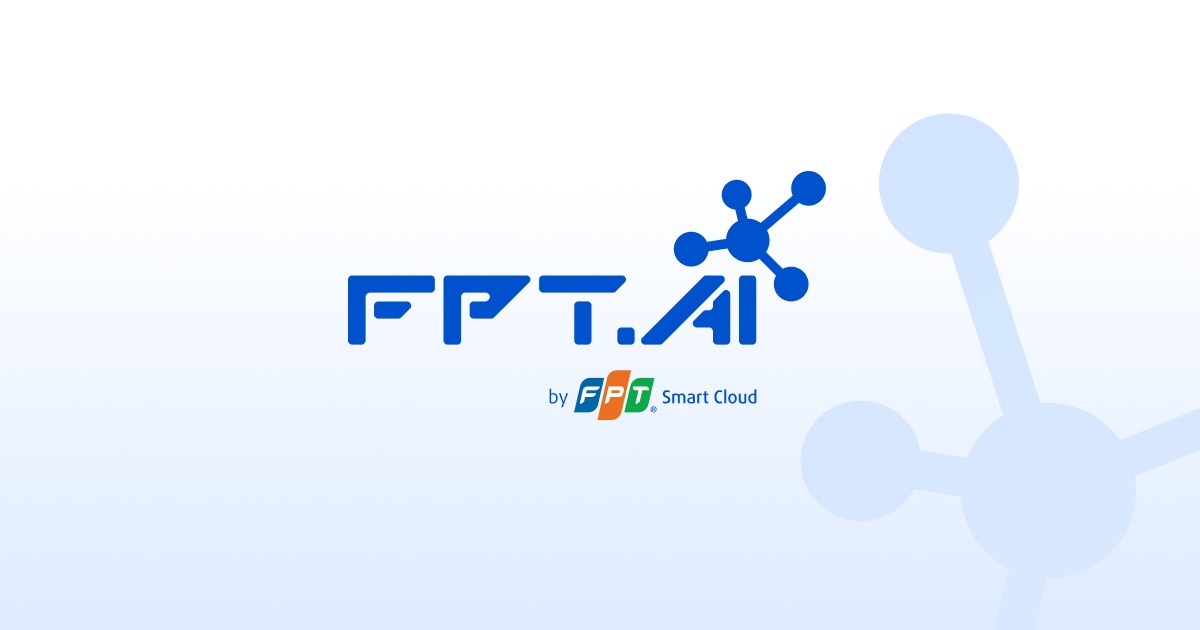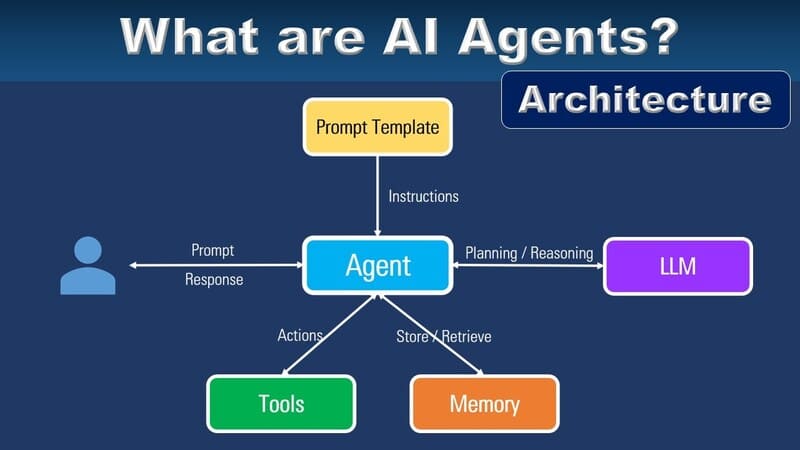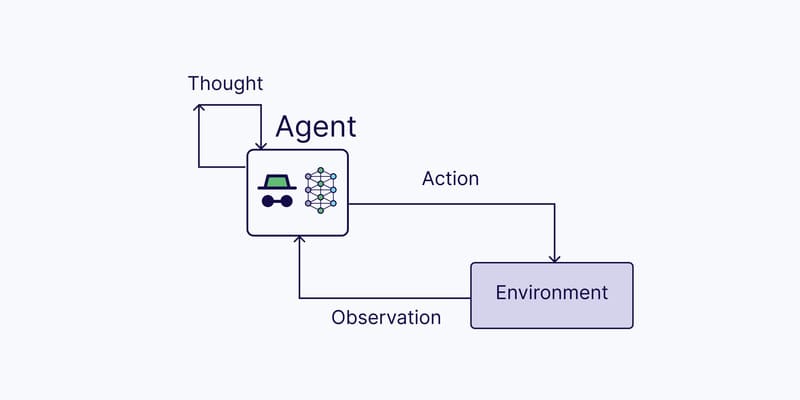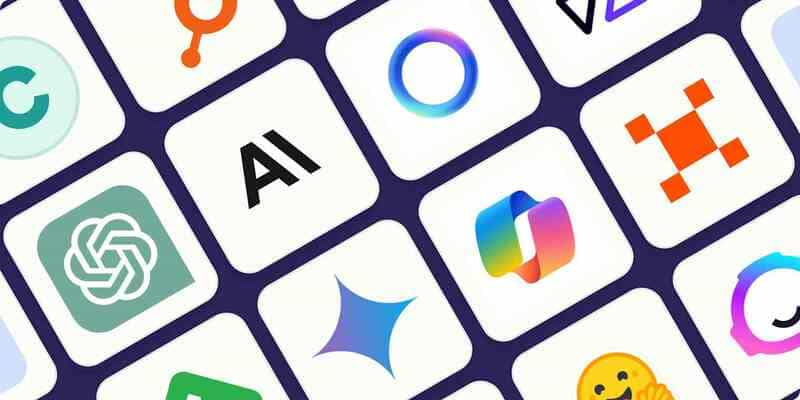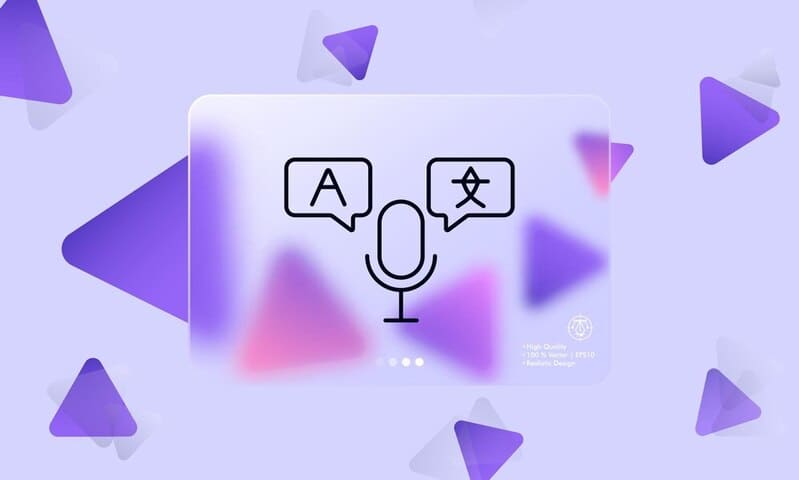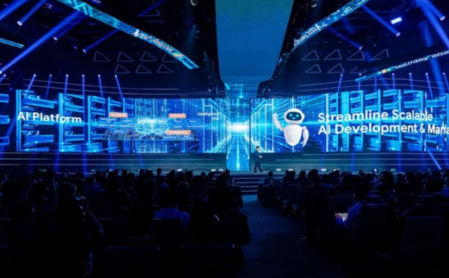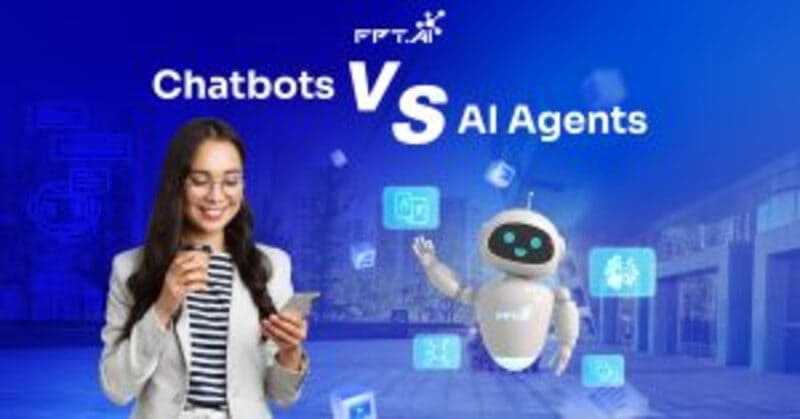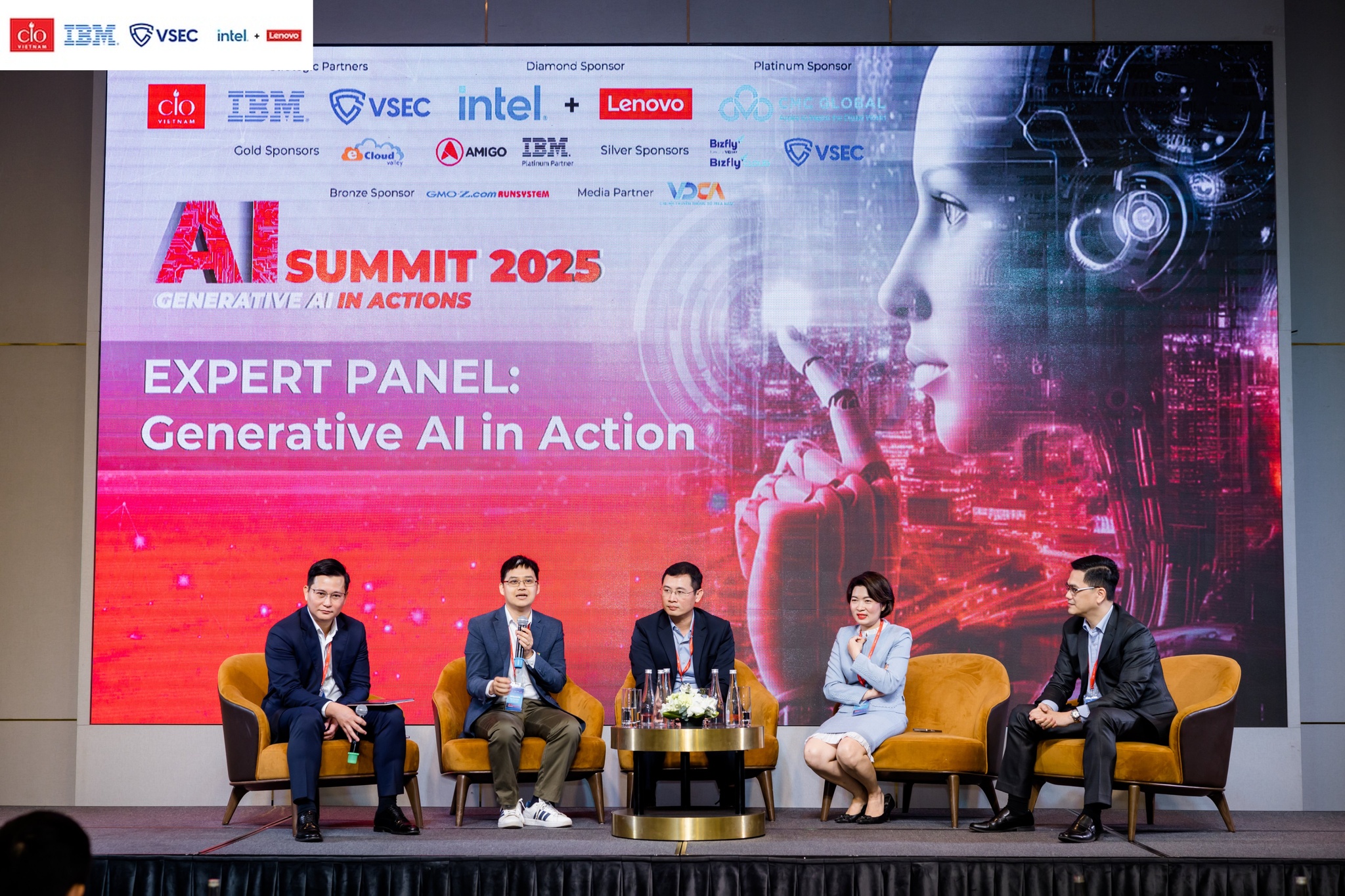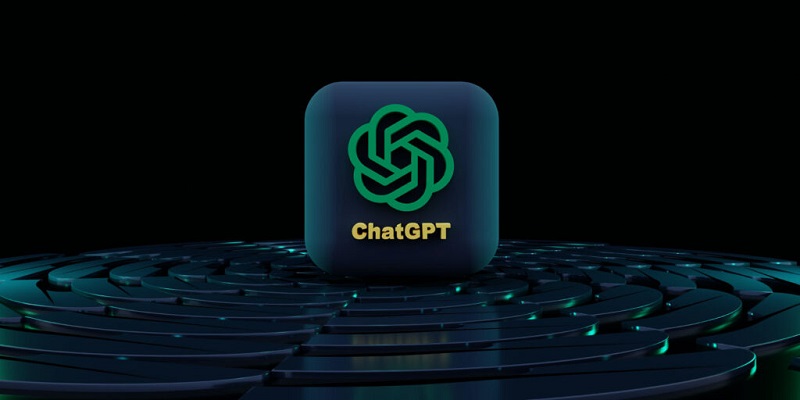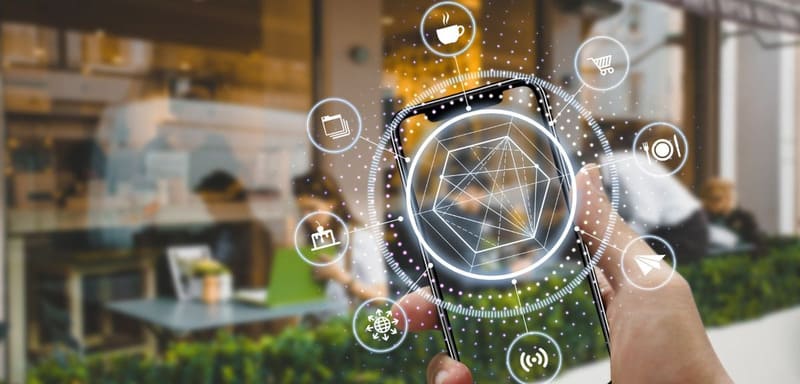AI Agents are becoming the mainstream trend in 2025 with the ability to support and replace humans in performing many tasks, from simple to complex. According to many experts, the explosion of AI Agents in work is a “stepping stone” before humanity moves towards artificial general intelligence AGI.
Mr. Nguyen Hong Phuc, Chief Science Officer of Conductify AI, commented that artificial intelligence has a much faster and more comprehensive development speed than other technologies, such as biology or quantum computing. “On average, AI has a small breakthrough every two weeks, a big step forward every month, and in the past year, AI has made comprehensive changes,” he shared.
2024 will witness a strong expansion of AI, from the ability to generate text like ChatGPT in 2023, to new areas such as image, video, audio creation, content creation and learning support. However, the question is: How effectively can AI change the way people work?
Most AI models, such as OpenAI’s GPT and o, Google Gemini, Anthropic Claude, Meta Llama or DeepSeek, mainly help speed up productivity rather than completely change the way people work. People still do the same work as before, but at a faster speed and higher efficiency. The birth of AI Agents marks an important turning point, when AI not only supports but also has the ability to automate processes and perform work on behalf of humans more proactively.
In this article, FPT.AI will describe in detail the trend of applying AI Agents at work and why AI human resources are a prominent technology trend in 2025. Let’s explore.
What are AI Agents?
At the end of 2024, the term AI Agents began to be mentioned a lot by large technology corporations and scientists around the world. In fact, this concept has been around since 2023, referring to the ability of artificial intelligence to assist with repetitive and boring tasks.
“Imagine an AI in customer service that can predict a user’s needs before providing an answer, or an AI managing network connections that can detect potential problems and automatically handle them to ensure uninterrupted service,” Liz Centoni, Cisco’s Director of Customer Experience, shared with National Technology. “This will be an important trend in 2025, when AI becomes more autonomous, more automated, and integrated into personal devices, IoT, robots… to perform tasks in reality.”
According to Mr. Phuc, AI Agent can be understood as an artificial intelligence system that is capable of operating independently and making decisions based on specific goals set by humans.
“Unlike AI chatbots or virtual assistants that can only answer questions, AI Agents are designed to handle complex tasks, can interact with other systems and even operate continuously without human intervention. In other words, AI Agents at work not only respond but also proactively complete tasks and make decisions when necessary,” Mr. Phuc explained.
According to Mr. Tran The Trung, Director of FPT Technology Research Institute, in general, AI Agent is an automatic system that performs professional tasks in a similar way to humans or employees in the organization, but without support or intervention and still achieves high efficiency.
According to IBM’s definition, AI Agent is a system or software that can automatically perform many tasks on behalf of humans, by building the optimal operating order and taking advantage of available tools.
Amazon has also provided a similar definition, describing an AI Agent at work as a software program that can interact with its environment, collect data, and use that information to perform self-defined tasks to achieve a given goal. While humans set the goal, an autonomous AI Agent can make its own decisions about what actions to take to achieve that goal.
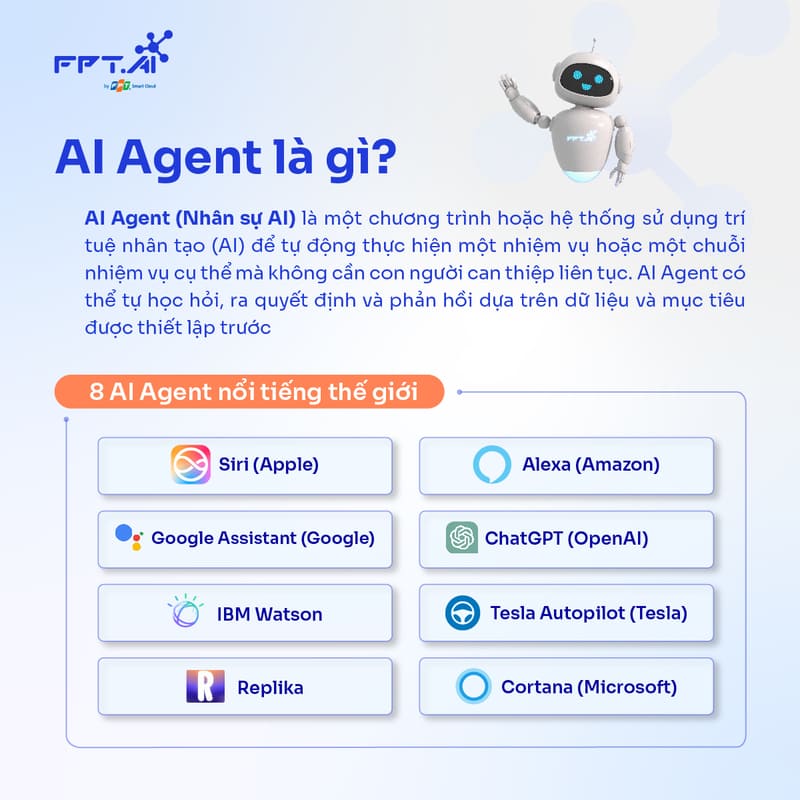
>>> EXPLORE: How to build an AI Agent and train it successfully?
Real-life applications of AI Agents work
According to Mr. Phuc, the application of AI Agent in work brings a breakthrough when compared to chatbots. Instead of just stopping at the question-and-answer function, AI personnel can automate work processes flexibly.
“We are getting closer to AI replacing humans in repetitive tasks, and that can start as early as 2025,” he commented.
Technology expert Duy Luan assessed that AI Agent, to some extent, can think for itself and use designated support tools. “This technology can be applied in many fields, typically controlling computers, retrieving and processing information according to input, supporting customers,…” Mr. Luan shared.
In the world, a number of large technology corporations have been considering using AI Agent in work to replace humans. In January 2025, Meta CEO Mark Zuckerberg said that AI Agents could take over the role of a mid-level engineer in his company as early as this year.
In December 2024, Salesforce, one of the leading cloud technology companies, announced that it would not hire any more software engineers in 2025, citing the significant improvements in productivity thanks to AI. The company has developed an automated AI Agent with flexible customization capabilities, directly connected to business data, and performing various tasks in the fields of sales, customer service, marketing, and commerce.
Meanwhile, OpenAI CEO Sam Altman said that virtual employees will start entering the labor market this year. In a blog post on January 6, he shared:
“2025 will be the year we witness the emergence of AI Agents, also known as virtual employees, in many businesses. They not only support but can also significantly improve work productivity. The gradual introduction of advanced AI tools into practice will bring about large and increasingly widespread impacts.”
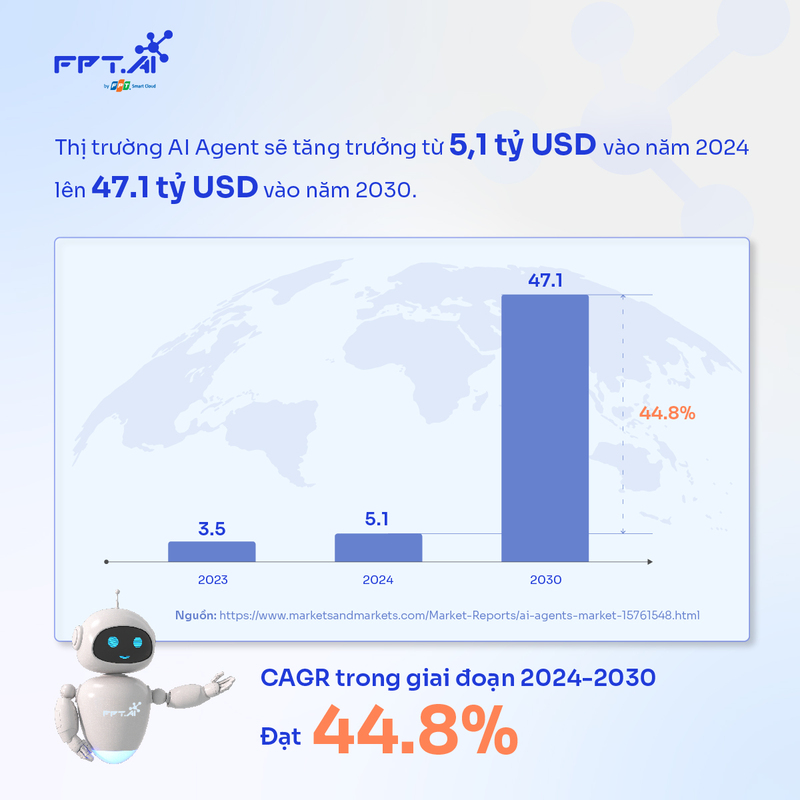
In a report predicting 6 AI trends that will explode in 2025, Microsoft Vietnam assessed that AI Agents will reshape the way we work: “Thanks to advances in memory, reasoning and multimodal interaction, AI Agents can handle complex tasks more flexibly and effectively.”
Sharing the same view, Mr. Nguyen Nhu Dung, Managing Director of Cisco Vietnam, Laos and Cambodia, also predicted that AI will become an important part of the workforce, taking on many tasks instead of humans.
>>> EXPLORE: AI Agents for Business Internal Operations in Vietnam
In Vietnam, how is the trend of applying AI Agents at work taking place?
“Vietnam will have thousands of AI personnel, or in other words, thousands of mature AI models, widely applied in all areas of life. These assistants can support millions of people at the same time, helping to increase labor productivity many times over. When AI Agents are fully automated, AI Agents will perform work at a speed far surpassing that of humans” Mr. Truong Gia Binh shared about the future development of artificial intelligence in Vietnam in an interview with VnExpress in December 2024.
Two months earlier, FPT launched its first AI Agent at the Techday 2024 event. According to Mr. Vu Anh Tu, FPT’s Chief Technology Officer, FPT AI Agents is a platform researched and developed by the group’s experts to create and operate multilingual AI Agents, leveraging generative artificial intelligence (Generative AI) and large language models (LLM). This platform helps businesses build a team of AI personnel capable of collaborating effectively with humans.
Mr. Tu said: “AI personnel will appear everywhere, supporting people in many different tasks such as programming, processing documents or writing emails. We aim for every FPT employee to have an AI Agent at work to work more effectively, and each customer will also have at least one AI Agent to support them. This year, we will accelerate this process.”
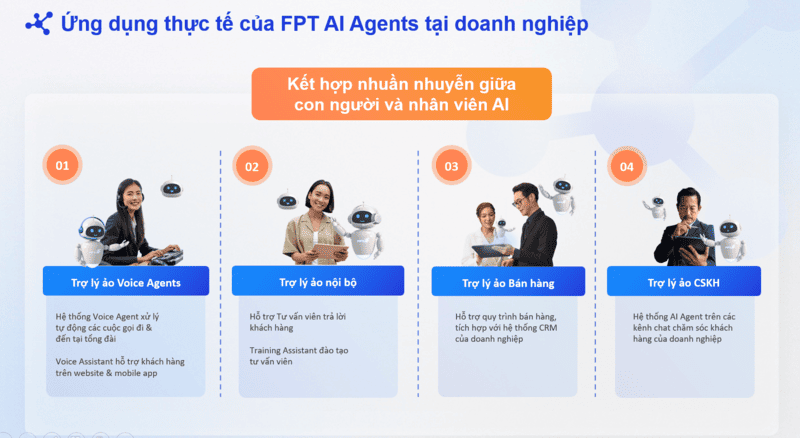
According to Mr. Tran The Trung, Vietnam already has a strong computing infrastructure, creating favorable conditions for developing artificial intelligence algorithms to serve the development of AI Agents. He also emphasized that “Some units have collected and accumulated large amounts of data to train AI Agent models”.
In addition, he revealed that some domestic companies are implementing humanoid robot projects to combine with AI Agents. “Vietnam has the opportunity to catch up with the growing AI Agent trend in the world. However, this will depend on the level of awareness, action strategies of pioneering enterprises as well as support from the Government,” Mr. Trung commented.
In short, the appearance of AI Agents in work is creating important changes, not only helping to speed up work but also gradually automating complex processes. Major technology corporations in the world and Vietnam have been investing heavily in building infrastructure and developing AI Agent models, to seize the opportunity to optimize labor productivity.
Although there are still challenges in deployment and management, the potential of AI Agent in work is undeniable, bringing us closer to a completely new era of labor.
>>> EXPLORE:






